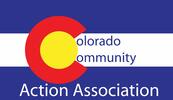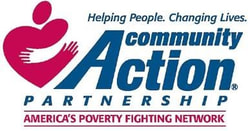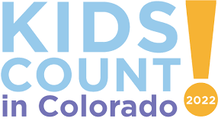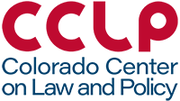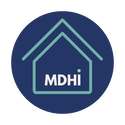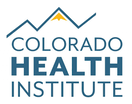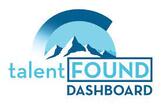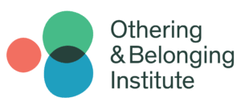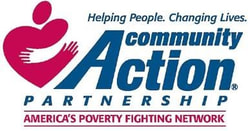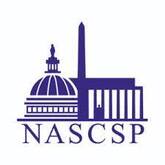A community needs assessment identifies the strengths and resources available in the community but also the gaps in services. The assessment focuses on the capabilities of the community, including its citizens, agencies, and organizations. Creating a valuable assessment is no easy feat. Here are some tools and resources to help your agency conduct a community needs assessment and explore some best practices for building your program around this assessment. The results from a community needs assessment helps you better understand what your program has to accomplish.
Please check back often for updates
Community Needs Assessment/Community Action Plan Tools & Resources
|
This checklist suggests an approach that state monitors can use to support the assessment of a CEE’s
report to determine if the CEE met each of the standards related to the community assessment. Three sections are contained within the checklist. |
|
The Data Hub acts as your entry into an online tool with multiple features that allow for the efficient use of data and mapping as part of a larger Community Needs Assessment process. Here, you can measure and visually represent the fundamental drivers of poverty in your community through an array of census data sets, a report generator, and a mapping tool.
If you are not yet a member of the Community Action Partnership Data Hub, you will need to register for a free account to use the tool. |
STATE OF COLORADO RESOURCE PAGES
|
This dashboard provides summary plots and quantitative demographic and poverty data specific to CO CSBG Grantee service areas to assist in their three-year Needs Assessment and Community Action Plan.
|
|
DOLA collaborates with researchers, economists and the housing industry to compile data vital to understanding Colorado’s housing climate. This data helps communities plan for and address affordable housing conditions and needs.
|
|
The Center for Health and Environmental Data strives to provide timely, innovative and high-quality public health data collection, analysis and reporting services to drive evidence-based decisions, translate data into action and support policy development to protect and improve the health and environment of all Coloradans.
|
|
The Department of Healthcare Policy & Financing oversees and operates Health First Colorado (Colorado's Medicaid program), Child Health Plan Plus (CHP+), and other public health care programs for Coloradans who qualify.
|
|
CDE collects and evaluates certain educational data as mandated by the state General Assembly. They also provide district-by-district data in specific educational areas, as well as a yearly collection of general education statistics for the state.
|
|
The Colorado Department of Human Services focuses on measuring and tracking efforts, as well as results, when it comes to delivering human services to Coloradans. CDHS leadership created C-Stat, a performance-based analysis plan, to support every CDHS program to better focus on and improve performance outcomes.
|
|
Browse CDOT's online catalog to find transportation resources, essential documents, reports, and manuals.
|
|
The Colorado Department of Early Childhood ensures the delivery of a comprehensive, community-informed, data-driven, high quality and equitable early childhood system that supports the care, education and well-being of all Colorado’s young children, their families and early childhood professionals in all settings.
|
|
The State of Colorado’s broadband efforts are driven by collaboration, leveraging funding opportunities and partnerships with local, state, and federal governments, communities, private industry and other organizations to ensure Colorado has robust and scalable broadband infrastructure.
|
|
A report prepared by Physicians, Scientists, and Engineers for Healthy Energy and the Institute for Energy and Environmental Research for the Colorado Energy Office
|
Key Sectors Data Sources
|
KIDS COUNT is a national and state-by-state project of the Annie E. Casey Foundation to provide data and track the well-being of children in the United States. At the national level, the principal activity of the initiative is the publication of an annual KIDS COUNT Data Book, which uses the best available data to measure the educational, social, economic and physical well-being of children by state.
|
|
Colorado Center on Law and Policy is a non-profit advocacy organization dedicated to the vision that every Coloradan should have what they need to succeed.
|
|
The living wage calculator to estimate the cost of living in your community or region based on typical expenses. The tool helps individuals, communities, and employers determine a local wage rate that allows residents to meet minimum standards of living.
|
|
This report synthesizes four data sources along with input from people with lived expertise to paint a comprehensive picture of homelessness in Metro Denver.
|
|
The 2021 Colorado Health Access Survey (CHAS) documents historic shifts in health, access to care, and social and economic conditions. More people than ever before reported challenges with their mental health, especially young adults.
|
|
The Empowerment Score aims to measure individual, community, and economic characteristics that lead to greater employment stability and increased wages for Colorado workers.
|
|
he Colorado Talent Dashboard serves as the online presence of the annual Colorado Talent Pipeline Report and shares talent development-related data more broadly. The purpose of the site is to help policymakers, program developers, and talent development organizations make informed decisions about building education, training, and workforce policies and programs.
|
|
The Human Services Gap Map provides a window into how effectively Colorado is delivering the basic building blocks needed for lifelong health and well-being.
|
Diversity, Equity, Inclusiveness, and Belonging Resources
|
The Colorado Equity Alliance is a collaborative effort to level the playing field and create systems in which all Coloradans have the chance to thrive. The alliance, comprised of representatives from both state agencies and community organizations, aims to operationalize equity and make sure it is woven into the fabric of state governance.
|
|
The State of Colorado believes that an equitable, diverse, and inclusive workplace is one where all employees and community partners, whatever their gender, race, ethnicity, religion, national origin, age, sexual orientation, gender identity, citizenship status, education, disability, socio-economic status, or any other identity, feel valued and respected.
|
|
The Othering and Belonging Institute at UC Berkeley advances groundbreaking approaches to transforming structural marginalization and inequality. We are scholars, organizers, communicators, researchers, artists, and policymakers committed to building a world where all people belong.
|
|
The Partnership's new tools and resources to strengthen the Networks capacity to analyze the intersection of race and poverty in the lives of the entire community.
|
The tool has an interactive map and uses datasets that are indicators of burdens in eight categories: climate change, energy, health, housing, legacy pollution, transportation, water and wastewater, and workforce development. The tool uses this information to identify communities that are experiencing these burdens. These are the communities that are disadvantaged because they are overburdened and underserved. Click here to learn more and access the tool.
